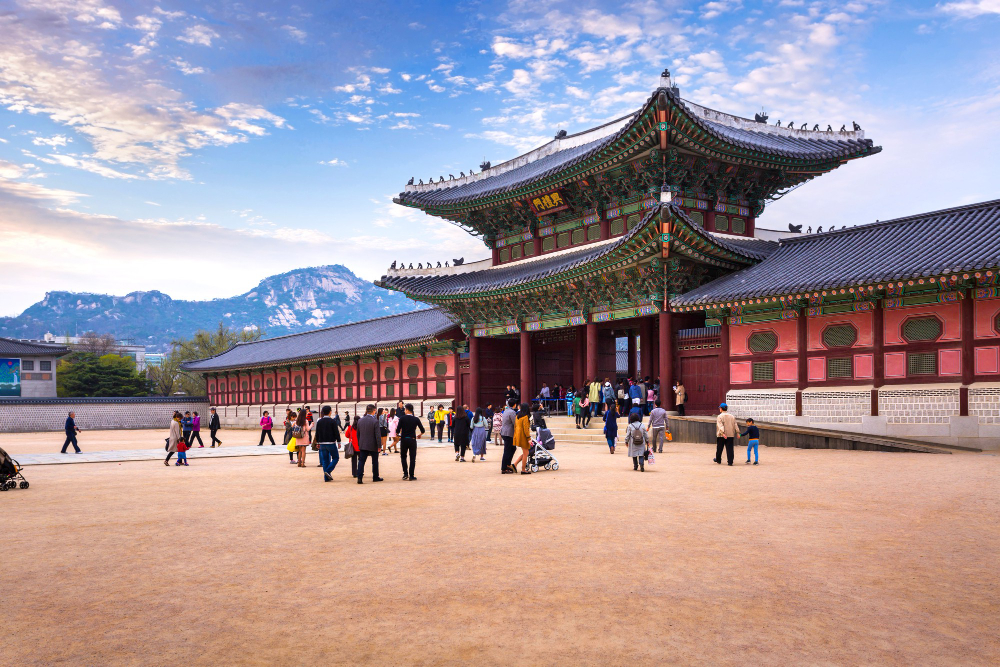
South Korea has emerged as a global leader in medical tourism, attracting patients from across Asia, the Middle East, the Americas, and Europe. Known for its advanced medical technology, high treatment success rates, and precision-driven care, Korea offers an ideal blend of modern healthcare and traditional hospitality. Seoul, Busan, and Daegu are major hubs where patients can access world-class hospitals, many of which are internationally accredited and equipped with the latest in diagnostic and surgical equipment.
Beyond its technology, Korea’s patient-centered philosophy and seamless integration of traditional Korean medicine into contemporary care create a unique healthcare experience. Government support through the Korea Health Industry Development Institute (KHIDI) and dedicated medical tourism divisions have further strengthened Korea’s global reputation, positioning it as a destination that balances innovation, quality, and patient comfort.
South Korea is globally recognized for aesthetic and reconstructive surgery, including facial contouring, rhinoplasty, and anti-aging treatments. It also leads in dermatology, robotic-assisted surgeries, cancer care, spinal surgeries, and cutting-edge fertility treatments like IVF. South Korea’s hospitals boast advanced imaging, minimally invasive procedures, and specialized rehabilitation—all provided at competitive rates.
In addition to cosmetic excellence, Korea excels in neurology, oncology, cardiology, and orthopedics, especially spine and joint surgeries. These procedures are offered in state-of-the-art hospitals staffed by physicians often trained in the U.S., Japan, or Europe. Short wait times, bundled service packages, and personalized concierge programs make the experience even more attractive for medical travelers.
South Korea is well-connected through Incheon International Airport, one of the world’s busiest and most efficient. The country offers visa exemptions or streamlined medical visas for many nationalities, simplifying travel for health-focused visits. Upon arrival, international patients benefit from multilingual support, airport pickups, hotel bookings, and on-site interpreters throughout the medical journey.
Hospitals in Korea cater extensively to international patients with English-speaking medical teams, dedicated global care centers, and even Chinese, Russian, and Arabic interpreters. Special dietary accommodations, cultural sensitivity (such as gender-specific care), and prayer or meditation spaces ensure a respectful and inclusive environment. The combination of traditional Korean wellness retreats, natural beauty, and modern hospitality makes recovery a comfortable and enriching experience.
Healthcare in South Korea is strictly regulated by the Ministry of Health and Welfare. Hospitals undergo regular audits and must comply with robust licensing systems. Many facilities are certified by Joint Commission International (JCI) or Korea’s own rigorous accreditation standards. Digital health systems, infection control, and strict privacy laws help ensure patient safety and trust.
Korea’s hospitals also emphasize post-procedure care, offering rehabilitation, follow-up consultations via telemedicine, and even mobile app tracking of recovery progress. Many hospitals are partnered with wellness hotels or in-house recovery centers, especially for patients undergoing cosmetic or orthopedic surgery. These services extend the care experience far beyond the operating room, fostering long-term healing and satisfaction.
South Korea has crafted a distinctive medical tourism experience—one where precision, aesthetics, and patient comfort intersect. Whether seeking cosmetic enhancements, life-saving treatments, or specialized surgeries, patients find exceptional care backed by advanced technology and warm hospitality. With efficient infrastructure, personalized services, and globally ranked hospitals, South Korea remains a smart and reliable choice for international healthcare.
1. Why is South Korea popular for medical tourism?
Because of its advanced technology, skilled doctors, and excellent results.
2. What treatments are most common in Korea?
Cosmetic surgery, cancer care, spine surgery, IVF, and dermatology.
3. Are doctors in Korea internationally trained?
Yes, many studied or trained in the U.S., Japan, or Europe.
4. Is medical care affordable in South Korea?
Yes, it's often cheaper than in Western countries with no long wait times.
5. Do hospitals in Korea speak English?
Yes, most private hospitals have English-speaking staff and interpreters.
6. How easy is it to travel to Korea for treatment?
Very easy. Incheon Airport is well-connected and many nationalities get visa-free or e-visas.
7. Are there services for international patients?
Yes. Hospitals offer concierge services, translation, airport pickup, and hotel support.
8. What safety standards do Korean hospitals follow?
They follow strict government rules and many are JCI-accredited.
9. Is follow-up care available after surgery?
Yes. Patients get recovery plans, rehab services, and remote consultations.
10. Can religious or dietary needs be accommodated?
Yes. Hospitals provide halal meals, gender-specific caregivers, and prayer spaces.
11. Are there wellness options for recovery?
Yes. Patients can access wellness resorts, spas, and Korean traditional therapies.
12. What is the time zone in South Korea?
Korea Standard Time (KST), which is GMT +9.
13. What currency is used in South Korea?
South Korean Won (KRW).
14. What language is spoken in hospitals?
Korean, but English and other languages are often supported for patients.
15. Is Korea good for cosmetic surgery?
Yes, it’s one of the world’s top destinations for facial and body procedures.